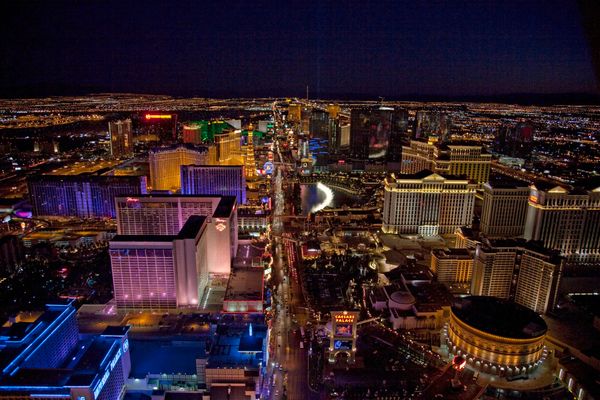Before entering the facility, I was told to keep an open mind. We were to look at the facility and judge it based on the evidence that we see.
I came to the conclusion however, that while the conclusions that I made were logical, it was my premise that was wrong to begin with. When looking at the wider hallways, large chapels, and multiple libraries, I believed that this is a very progressive prison that tended to the needs of the inmates. Sure the food was bland, but from the other three prisons I’ve been to, I have never seen a prisoner playing on his Xbox One. It wasn’t until I left the campus did I remember someone telling me that this is a detention facility, where many immigrants are waiting for their trials, people who wait for months before they are allowed to either stay in the United States or be deported. My assessment was right, but I came to the question with a wrong mindset.
I understand the importance of detention facilities: with a porous border patrol and with the odds stacked against most undocumented people in an immigration court, it is very likely that many illegal immigrants would try to leave the area, avoiding a trial at all. Many have the argument that if a person can easily get legal status, then there is no reason as to why an honest person should come here illegally, and therefore it falls upon a court of law to determine if these people have a right to remain here. Of course, this only works under the false claim that it is easy to come here legally. First, many people simply do not have the economic means of coming into this country legally, as it takes money to go through the process. Second, some detainees are coming from a conflicted area, fleeing dangers such as religious and political persecution, and racial discrimination. Leaving their country of origin in such a hurry means not planning months (and sometimes years) ahead to go to the American embassy and file the necessary paperwork, especially when the embassy is closed. Finally, the reason of their illegal status is irrelevant to the conditions these people have to face when they do enter the detention facility. Just because we have painted the plethora of reasons a person comes here illegally with the same brush doesn’t mean we have the right to hold these people in degrading conditions, making them feel as if they are truly incarcerated.
The NPO I work under, the Council on American-Islamic Relations, sent all the interns and law clerks to understand the situation better. There had been accounts of hunger strikes, and we were sent to get information in a way that you just can’t get from reading the newspaper. The strikes were in protest to the poor medical and health care, bland food, and lack of respect they get from the GEO Group, the private company that houses these federal immigrant detainees. GEO has a history of abuse in the facility, but I think that the biggest issue I had was my lack of interaction with the detainees. I was not allowed to speak, wave, or even smile at anyone, and even this disconnection can be demeaning. I was taught in my religion that it is not only a good deed to smile at someone, but it acknowledges another person’s existence and that his or her life is equal to that of your own.
I know there are problems I am not looking at, the lack of funding or even the understanding of multiple cultures, and I am sure they play a vital role in making the conditions of the detainees better. However, when we not only treat these people as criminals but are told that you not allowed to smile at another human being, it is not unlike visiting a zoo.





















